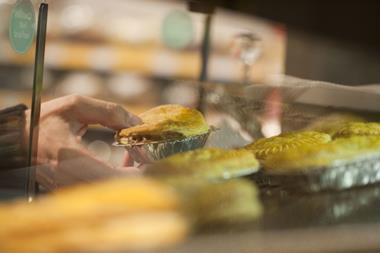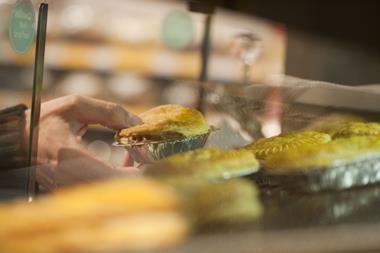The government has been urged to reconsider the ‘pasty tax’ amid claims it would hit those who can least afford it without raising much money for the exchequer.
In a letter submitted by the British Retail Consortium (BRC) to the exchequer secretary David Gauke, BRC director general Stephen Robertson outlined the negative impact the tax will have on retailers.
“Far from removing borderline anomalies, these proposals would result in greater uncertainty for retailers and added costs for consumers,” he said. “This will deter investment in already struggling high streets, undermine the government’s Portas response and damage job creation.”
As announced in last month’s budget, from October, retailers selling any type of hot food will be forced to pay 20% of the sale price in VAT. Any food served above “ambient” air temperature will be eligible for VAT, including pies, pastries and toasted sandwiches. The only exception will be freshly baked bread. It is expected that this will generate an extra £105m in annual revenue.
Robertson warned that the additional cost would deter people from buying the products, depriving both the government and the retailer of the money. “Consumers are easily able to swap to cheaper zero rated alternatives, impacting the entire supply chain, but with no net additional receipts to the Exchequer,” he said.
The ‘pasty tax’ would also cause consternation further up the supply chain he added. “Retailers who cannot pass on the full 20% increase to their customers will look for price reductions from their suppliers,” said Robertson. “This may cause businesses to fold as they will no longer be able to make a sufficient margin to survive.”
The government is currently canvasing views on the subject through a public consultation. The deadline for submissions in May 4 and they can be made online here.


















No comments yet